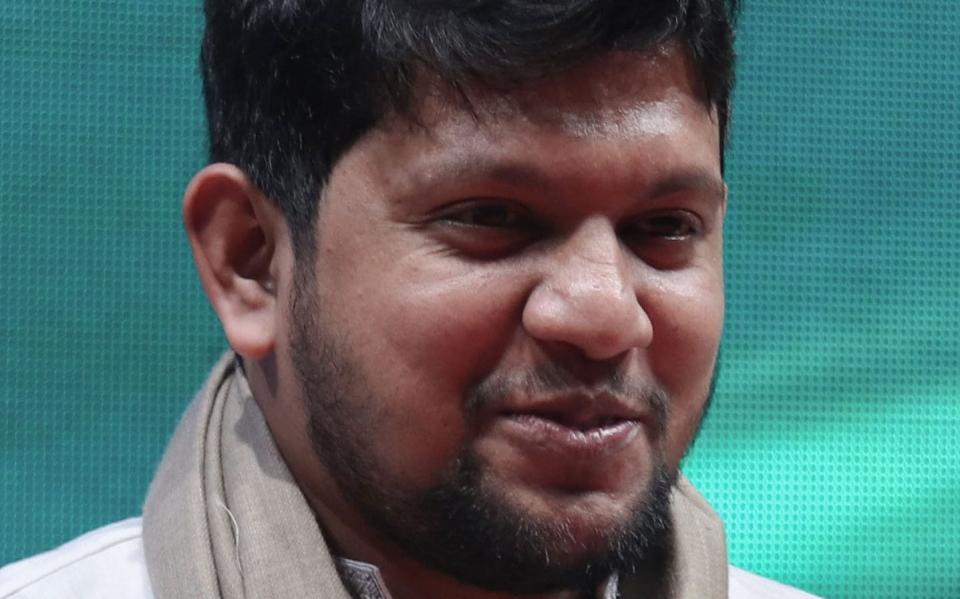India has stepped up security on its border with Bangladesh after an official in the country’s new government threatened to annex part of the north-east.
Mahfuz Alam, a senior adviser to new interim leader Muhammad Yunus, accused the Indian government in a Facebook post on Dec 16 of “ghettoising” and “colonising” the population in West Bengal, Tripura and Assam.
Bengali-speaking Muslims are the largest minority in all three states.
For Bangladesh to succeed as a country following the overthrow last year of pro-India prime minister Sheikh Hasina, it must grow geographically, Mr Alam wrote.
“A small, limited, landlocked” nation, he argued, would be doomed to fail, adding that the culture of north-east India has more in common with Muslim-dominated Dhaka than Hindu-majority Delhi.

“To ensure true freedom from India,” Mr Alam continued, the country needed another revolution, posting a picture of a map where Bangladesh’s borders extended across the three states.
ADVERTISEMENT
The Facebook post was deleted within two hours but it has led to a deterioration of already-tense ties between the neighbouring nations.
India’s foreign ministry said it had taken up the comments with Dhaka and a spokesperson said the remarks “underline the need for responsibility in public articulation”.
On Friday, it emerged that India’s Borders Security Force (BSF) has built new floating border outposts on the rivers that cross India’s border with Bangladesh, including the Ganga, Brahmaputra and Sunderbans.
“Waters are always vulnerable,” a BSF source told the New18 website on Friday. “We are patrolling the areas 24/7. More floating outposts will definitely help us. They are the need of the hour.”

India fears that Bangladesh’s new government could facilitate the movement of terrorists into the north-east through the river routes, which were used by Pakistan to ferry fighters across the border before Bangladesh gained independence in 1970.
ADVERTISEMENT
There are also concerns over potential funding and support of separatist movements.
Ms Hasina’s ousted Awami League party included members of Bangladesh’s minority Hindu population, and she has taken refuge in India since street protests ended her 15-year rule.
The government of Hindu nationalist prime minister Narendra Modi viewed Ms Hasina as a key ally, hoping to lure Bangladesh away from closer ties with China.
Since she was ousted, Mr Modi and his Bharatiya Janata Party (BJP) have repeatedly called on the new government in Bangladesh to protect its Hindu population amid a wave of violence.

Kirti Vardhan Singh, India’s minister for external affairs, last month estimated that 2,200 attacks against minorities including Hindu were carried out in Bangladesh until Dec 8, up from 302 last year.
The press office of Mr Yunus, an economist and Nobel laureate, called this figure exaggerated and said only 138 attacks took place until November.
ADVERTISEMENT
With tensions rising following Mr Alam’s Facebook post, Bangladesh’s army chief, General Waker-Uz-Zaman, last week said Dhaka would do nothing to destabilise India’s north-east.
“We will not do anything with our neighbour that goes against their strategic interests,” he told local newspaper Prothom Alo.
But the offer was contingent on Delhi doing “nothing that is contrary to our interests”.

Dhaka blames Mr Modi for whipping up opposition to its fledgling government.
On Dec 2, Indian demonstrators stormed Bangladesh’s diplomatic mission in the north-eastern city of Argatala, protesting against the arrest of a Hindu monk in the Bangladeshi capital.
Dhaka immediately suspended all consular services in the mission and summoned New Delhi’s envoy in protest.
“India is constantly spreading misinformation against Bangladesh and the July revolution, aiming to isolate Bangladesh internationally and portray it as an Islamist stronghold,” Asif Nazrul, law minister in the interim government, told The Telegraph.
ADVERTISEMENT
In a meeting with multiple political parties after the Agartala incident, Mr Nazrul proposed organising a rally to counter what he branded Indian propaganda.
He added: “It may be true that during the July revolution and later, a few Hindu persons were attacked or imprisoned. But the reason for these attacks was their criminal activities with the Awami League.”

Hindus make up about eight per cent of Bangladesh’s 170 million population.
On Dec 6, activists in Dhaka marched towards the Indian High Commission, calling on Delhi to stop painting Bangladesh as unsafe for minorities.
“Bangladesh is a perfect example of religious harmony and India would be the first in oppressing the minorities,” Sharif Osman Hadi, an organiser of the march, told the Telegraph. “So we don’t want any big brother approach from them.
In her first public speech since her overthrow, Ms Hasina last month criticised Mr Yunus for an alleged “genocide” against minorities.

Speaking to The Telegraph, Asif Mahmud, a youth leader during the summer protests and currently an adviser in the Yunus administration, hit out at India for giving sanctuary to Ms Hasina.
“They (the Indian government) are now even giving Hasina, who is accused of crimes against humanity, state facilities,” he said. “That is why Bangladeshi people are angry with the Indian government’s stance.”
When asked what could restore friendly relations between the two subcontinental neighbours, Mr Nazrul said, “Forgetting the dream of reinstalling her puppet rule, honouring Bangladesh’s sovereignty and people’s verdict expressed through the July revolution and rebuilding friendly relations with Bangladesh based on equal dignity and rights.”
Ms Hasina was toppled in early August by popular protests sparked by perceived favouritism in the allocation of prized government jobs. She ordered the army to shoot protesters before she was forced to flee, killing an estimated 400 to 800 people.
India’s foreign ministry confirmed last week that it received a request from Bangladesh to extradite Ms Hasina, but did not comment on whether it would do so.
EMEA Tribune is not involved in this news article, it is taken from our partners and or from the News Agencies. Copyright and Credit go to the News Agencies, email news@emeatribune.com Follow our WhatsApp verified Channel




